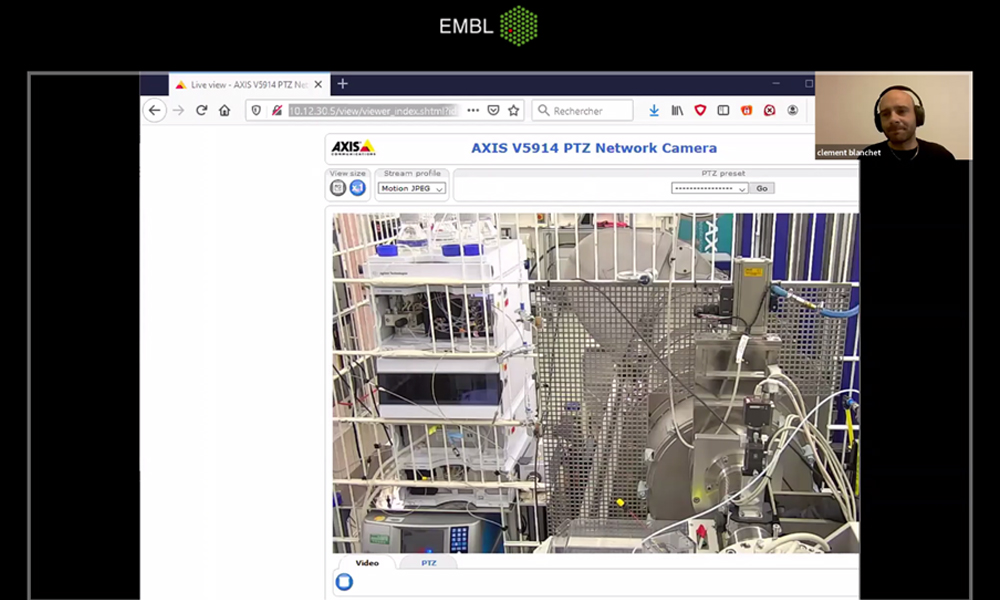The Svergun group at EMBL Hamburg has released the course 'Solution Scattering from Biological Macromolecules' in an online format for the first time. The course explores different aspects of small-angle X-ray scattering (SAXS) for studying the structure of macromolecules.

For several years, the Svergun group has organised practical courses on SAXS at EMBL Hamburg and lecture courses in various countries around the world, including China, South Africa, and Brazil. This year, confronted with the lockdown due to the COVID-19 pandemic, the group decided to offer a virtual SAXS lecture course. Within a short time, a suitable online platform was identified with the help of EMBL's Photolab team, who are responsible for audiovisual arrangements for EMBL's courses and conferences. The syllabus was adapted to the online format and registration information was disseminated. Interest in the course far exceeded the organisers' expectations, as they received over 600 registrations from more than 45 countries - a much larger audience than was possible with the previous face-to-face courses, which typically hosted 20-40 participants. Adapting the course for remote training and for a diverse audience in different time zones was challenging and required much preparation, but the organisers feel it was really worth it. "From the beginning, we have received so many emails from participants all over the world thanking us that we were making this course globally accessible," says Melissa Graewert, one of the organisers.
Over four weeks, eight lectures and Q&A sessions covered various theoretical and technical aspects of SAXS, including sample preparation, instrumentation, and data analysis. In a follow-up session, participants discussed real-life examples of SAXS use, such as the current project by EMBL Hamburg's Löw group, in which high-throughput SAXS helped the group to identify molecules that may block the SARS-CoV-2 virus from infecting cells, and to structurally characterise relevant complexes.
On average, 130 students attended the live sessions and approximately 80-100 participants viewed the recordings that were made available afterwards. The 100 returned feedback forms showed that novices and users with limited knowledge of SAXS (80% of the participants) benefited especially from the course. They appreciated the opportunity to learn how to use SAXS in their research, and almost everyone stated their interest in follow-up lectures and further practical sessions.
The course is one of many examples of training opportunities offered by EMBL. Through these courses, EMBL aims to support the professional development of young life scientists and the exchange of expertise among research communities. Dmitri Svergun, EMBL group leader and one of the leading SAXS experts worldwide, believes it is vital to share his group's experience with others. "SAXS is a really universal technique for different types of samples, but many people are not aware of this," he explains. "Propagating this awareness among the community is important." In addition to training, courses are an excellent opportunity to network and start new scientific collaborations. EMBL's SAXS facility in Hamburg provides services and support to scientists in measuring samples and carrying out data analysis, and courses allow members of the facility to address new research communities.
Although online courses cannot replace hands-on experience, their great advantage is accessibility to young scientists, regardless of their budget or geographical location. In each live-streaming session, participants could engage in interactive discussions with leading experts in the field and with other participants. "It was a completely different atmosphere. Offline as well as online, we received a wide span of questions reflecting the vast range of biological applications of SAXS. One could see people were following the chat and responding to each other's questions as well," says Al Kikhney, a course co-organiser. Encouraged by the success of this year's virtual SAXS course, the Svergun group would like to continue offering online training in the future, in parallel with face-to-face courses.
Related links
Tags: Courses, EMBL Hamburg, SAXS, Structural Biology, Svergun






